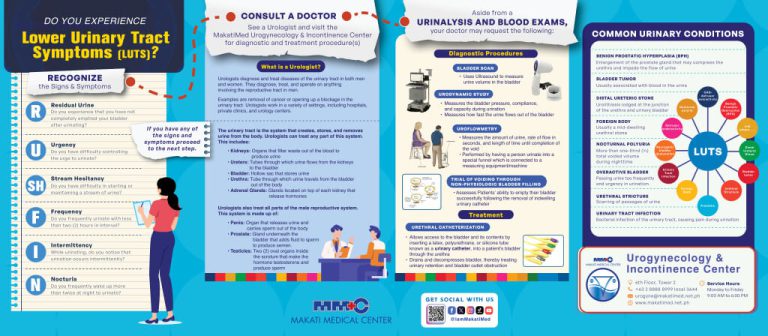One of the most critical stages in a mother-child relationship is during the child’s teenage years. During this time, parents might start seeing their children’s behavior change. They no longer depend on you for their needs as they used to when they were infants or toddlers. They might also not see eye to eye with you anymore, as they begin making their own decisions and doing things that you may not approve of.
Teenage girls are more vulnerable to emotional outbursts, which might come on too strong for you. The result? A full-blown fight with your daughter.
While you’re trying your best to be an understanding parent, your teenager is also struggling to figure out why you’re being overly critical and less sympathetic. In this kind of situation, it’s best to step back to really assess what factors affect your teen’s changing behavior. This will allow you to offer the right kind of support your daughter needs and improve your relationship with her.
Here’s what you need to know about your teenage daughter:
1. The frontal lobe of the brain is the last to fully develop
Your teenage daughter might be living in an adult-looking body, but as far as her brain is concerned, her mental and emotional faculties are only beginning to mature. This is because the frontal lobe of the brain, which is responsible for controlling impulses, judgment, and emotions, hasn’t completely developed yet. Meanwhile, the amygdala—the primal part of the brain that’s known for its instinctive reaction—takes over in a less reasonable manner.
So, if you see your teenage girl displaying impulsive behavior or making hasty decisions, try not to equate it with being inconsiderate. What you can do is verbalize that she’s allowed to commit mistakes and that these errors in judgement are also learning opportunities for her.
2. Harsh verbal discipline can lead to psychological problems
Sometimes, out of frustration, you run out of patience and say harsh words to your teen. While you might think it’s a necessary thing to do to get your teenager’s attention, it creates an opposite effect on their mental health.
When you resort to shouting, you’re creating the impression that it’s an acceptable way of communication if it gets the job done of driving a message. Harsh verbal discipline also creates an environment of resentment, self-doubt, trauma, and may bring out psychological problems. Take care of your daughter’s fragile self-worth at this stage by providing an atmosphere of love and respect in the way you talk to her.
3. Pressuring your teen to perform better in school may foster resentment
As parents, we like telling our children that we want them to have a comfortable life in the future and that a good education is the means to achieve this goal. Just be careful not to overdo this. Putting pressure on your daughter to excel in academics isn’t healthy.
When you become too focused on one aspect of her education, it can be easy to forget that there’s no single formula to becoming successful in the future. Also, it might send her the wrong message that she needs to meet your expectations, or you won’t be proud of her.
Ask your daughter instead about the things in school that interests her the most, and encourage her to cultivate those interests.
4. Spending quality time with your teenager will reduce their risk for behavioral issues
Teen years can be confusing for both you and your daughter. As far as your daughter is concerned, there’s that desire to have more freedom. To make her feel that you trust her enough to live an independent life, you can let her have the time and distance that she wants for herself.
It’s important, though, that you don’t let this distance grow. This is a crucial stage when your daughter is exposed to social pressure, emotional anxiety, and other issues, making your presence around her absolutely necessary. Regardless of how you and your daughter choose to spend time together, use it as an opportunity to make her feel that she can always come to you for support, advice, or even just for company.
5. Teenagers base their actions on immediate gratification, not future consequences
Instant gratification in teens can manifest in many ways—from being impatient while their favorite game loads on their mobile screen to typing on Google to download samples for their research paper. They want everything in the now. So, when they don’t get what they want, when they want it, they feel disappointed with themselves or even with their parents.
The true test for you as a parent is to be able to stand your ground about the important lessons in life. Help your daughter realize that she cannot have everything she asks for in an instant, but that she can get something she deserves through hard work and dedication.
6. They’re just starting to form their moral code
Whether you admit it or not, there are times when you wonder whether your teen is already capable of telling between right and wrong. You might expect your daughter to have the same values as you do, and you’re quick to shoot down anything outside of that value system. However, do not underestimate your teenager’s ability to think rationally and use their learning experiences to improve themselves.
Understanding Your Teenage Daughter
Raising a teenage daughter can be more challenging than what you probably expected. There will be lots of disagreements and misunderstandings with your teen. If not addressed properly, you might end up questioning your parenting style or alienating your daughter from you.
Neuropsychiatry experts can help you assess these issues and offer professional advice on how to deal with them. They can also guide you in processing the behavioral changes that you’re seeing in your daughter, which will help you better understand where she is coming from.
At the end of the day, you need to be able to communicate with your daughter in a way that shows you love her and that you only want what’s truly best for her.











